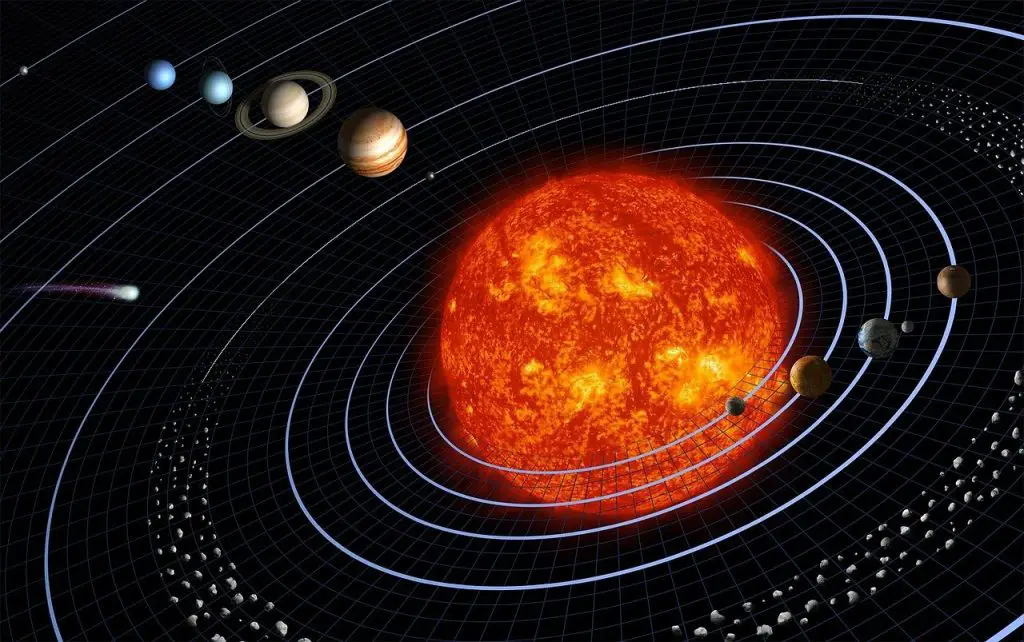Chinese media recently announced that the Jielong-3 or Smart Dragon-3 launched off the coast of Yangjiang was reportedly carrying a commercial artificial intelligence-powered satellite on board on February 3, 2024. An article published by CGTN claimed that it is the world’s first in-orbit commercial AI satellite. But in 2023, a Chinese commercial rocket launched a group of satellites into orbit. This includes an advanced AI-powered satellite called ‘Wonder Journey.’
This futuristic satellite was able to process data on its orbit instead of depending on ground control and it also targets to move the world into the era of using fully autonomous spacecraft in the future.
But unlike Wonder Journey, this new hypersatellite built by Guoxing Aerospace Technology is named Rongpiao or Xingshidai-18. It was developed as an integrated sensing network satellite that has a sixth-generation computing system.
The brand-new satellite also comes with a smart algorithm that combines and studies different data types. Hence his futuristic ability of the hypersatellite operates in similar terms just like our senses work jointly together to give us a complete knowledge and understanding of our environments.
Xingshidai-18 can be able to connect and communicate with other systems from a distance. This ability makes the satellite sophisticated enough for potential use in future communication networks.
Most of these satellites were launched into space from the Taiyuan Satellite Launch Center in north China. This particular location holds the record for the most satellites launched from the nation by a single rocket.
Major Role of The AI Satellite in Space
As the world continues to improve with its use of AI technologies, space agencies have started considering using them in space-based technologies as well.
As for the Xingshidai-18, only a little practical information about it is released to the public. However, the AI satellite comes with an algorithm designed to process and study different types of sensory data or inputs gathered together by the satellite’s sensors.
Hence, mmediately the AI satellite arrives in orbit, it will perform tests to prove that its AI systems work perfectly and efficiently under practical space hostile conditions. This implies that data from spectrometers, cameras, and other powerful instruments onboard the satellite will be obtained autonomously.
The primary goal of this AI satellite is to potentially boost the satellite’s capabilities in complex assignments like data collection, and Earth observation and also to make autonomous decisions based on the information it analyzes.
Reasons why This Launch of Hypersatellite is Important to the Chinese Space Agency
The launch of the Xingshidai-18 AI satellite into orbit is important to the Chinese space agencies for two reasons. Firstly, it marked the second launch of the Jielong-3 rocket in just within a period of two months. The rocket is crafted to carry numerous satellites into orbit at a cheaper cost.
The second reason is that Xingshidai-18 is developed and equipped with AI technology. Currently, the Chinese company behind the launch targets checking if the satellite’s smart system works in weightlessness.
In addition, it could be possible that the satellite might be the first out of many to work together as a part of the more massive group in future communication networks. These two achievements show how committed China is to advancing its space potential using AI-driven satellite technology.
In April 2023, an AI system was granted access to control a satellite’s camera for a whole day. Throughout the given period, the AI directed the satellite to capture fascinating images of different locations on Earth.
This effort made by AI amazed many scientists and space lovers across the globe. In addition, t showed AI could possibly help us to accomplish a lot in the future.




